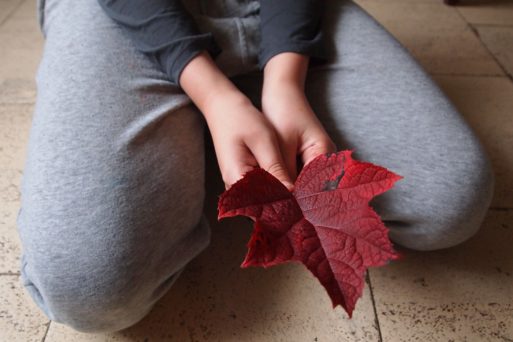Join SevenPonds each month as Tani Bahti, RN, CT, CHPN, offers practical on-hand guidance to demystify the dying process. As an RN since 1976, Tani has been working to empower families and healthcare professionals to have the best end-of-life experience possible both through education and the development of helpful tools and resources. As the current Director of Pathways, Tani is also the author of “Dying to Know, Straight Talk About Death and Dying,” considered by SevenPonds to be one of the most practical books on the topic. Founder Suzette Sherman says this is, “the book I will have at the bedside of my dying parents some day, hopefully a very long time from now.”
Knowing what to do and how to understand the changes after a death has occurred are just as important as understanding the natural changes and responses before death.
Credit: pixabay.com
“I think he stopped breathing.”
Although you been anticipating that final breath for hours or days, when it actually arrives, it can still feel like an unreal shock. Wait a few minutes, as sometimes the breathing slows down so much or becomes so shallow that you don’t notice it. You can put a mirror by Dad’s nose or mouth to see if there is any condensation of breath.
Once you’ve confirmed that his heart and breathing have stopped, notify the hospice on-call nurse to “pronounce” the death and notify the mortuary. If you not on a hospice program, you will need to call 9-1-1. Be sure you have your father’s orange Prehospital Do Not Resuscitate Advance Directive available to show first responders. This affirms that his death was expected and allows the paramedics to defer CPR. It also provides the physician’s name for the death certificate.
What do you need to do now?
That’s up to you.
Are there people to call who would like to see your dad before his body is removed? There is no rush. If others are coming, I like to make sure the person is clean and groomed as this is a final memory for you all. Put the bed side rails down and place his arms and hands on the outside of the covers so those who want to hold them can reach them easily. Touching and hugging and talking to your father at this time can be helpful in gaining closure.
Why does he look so pale?
Since blood is no longer pumping in Dad’s body, gravity will pull it away from the tiny vessels under his skin to deeper levels in the body.

Credit: pixabay.com
Why don’t his eyelids close?
There are fat pads behind the eyes that can shrink with the natural dehydration that may occur before death. The eye then falls back further into the socket, affecting the ability of the lid to cover the eye.
Why are some body fluids or excrement released after death?
As the body relaxes in death, the sphincter muscles that held in bodily fluids and the contents of the G.I. tract in place will suddenly relax. This can result in a loss of urine, feces or even stomach contents. While disturbing to see, this is natural and normal.
When we moved him, he made a sound. Is he still alive?
The air that remained in the lungs will move when the lungs are compressed thru movements such as turning. That can make the noise you hear.
At first he was easy to hug, but now he seems stiff. What happened?
The stiffening of the muscles is called rigor mortis and can begin 30 minutes to several hours after death, due to chemical changes that have occurred. It can be 1-4 days before the body again ‘softens’, depending on the climate and circumstances.
I feel numb, but others are crying hysterically. Is there something wrong with me?
Everyone responds differently and in their own time. Do not judge that. At different times, people who have lost a loved one may feel grief, relief, gratitude, anger and more. Sometimes the shock creates that numbness or seeming detachment, which allows you to get through the tasks of making phone calls, completing paperwork, cleaning the body or whatever is needed in the moment.

Credit: pixabay.com
Sometimes loved ones begin to share anecdotes, which can result in tears or even joy and laughter precipitated by the memories. This is not disrespectful. The stories reveal their shared love and connection, and are just one of many ways to acknowledge the intensity of what just happened and to help them feel less alone in their loss.
No matter what reaction you are feeling, you have just experienced the end of a relationship through death.
Be gentle with yourself and others.
Take a look at a copy of Tani’s book “Dying to Know — Straight talk about Death and Dying” to help demystify the process and offer words of wisdom on the many aspects of dying.

 “Dad just died…I think. Now what?”
“Dad just died…I think. Now what?”



 “In Case You Don’t Live Forever” by Ben Platt
“In Case You Don’t Live Forever” by Ben Platt
 Our Monthly Tip: Make an “In Case of Death” File to Ease Loved One’s Grief
Our Monthly Tip: Make an “In Case of Death” File to Ease Loved One’s Grief
 Passing of Beloved Comedian Births a New Comedy Festival
Passing of Beloved Comedian Births a New Comedy Festival















I struggled with feeling numb when my stepfather passed away. I had trouble acknowledging that death was real. I’m doing some reading (like your blog, which is very helpful and well-written) to get me used to the idea of mortality. You’re so right when you say everyone handles a death differently. Many don’t realize that and they expect tears as the only acceptable response.
Report this comment
Hi Vivian,
Thanks for your comment. We are sorry to hear of your stepfather’s death.
Letters like yours mean a lot to us! We are motivated by helping those like you.
Report this comment